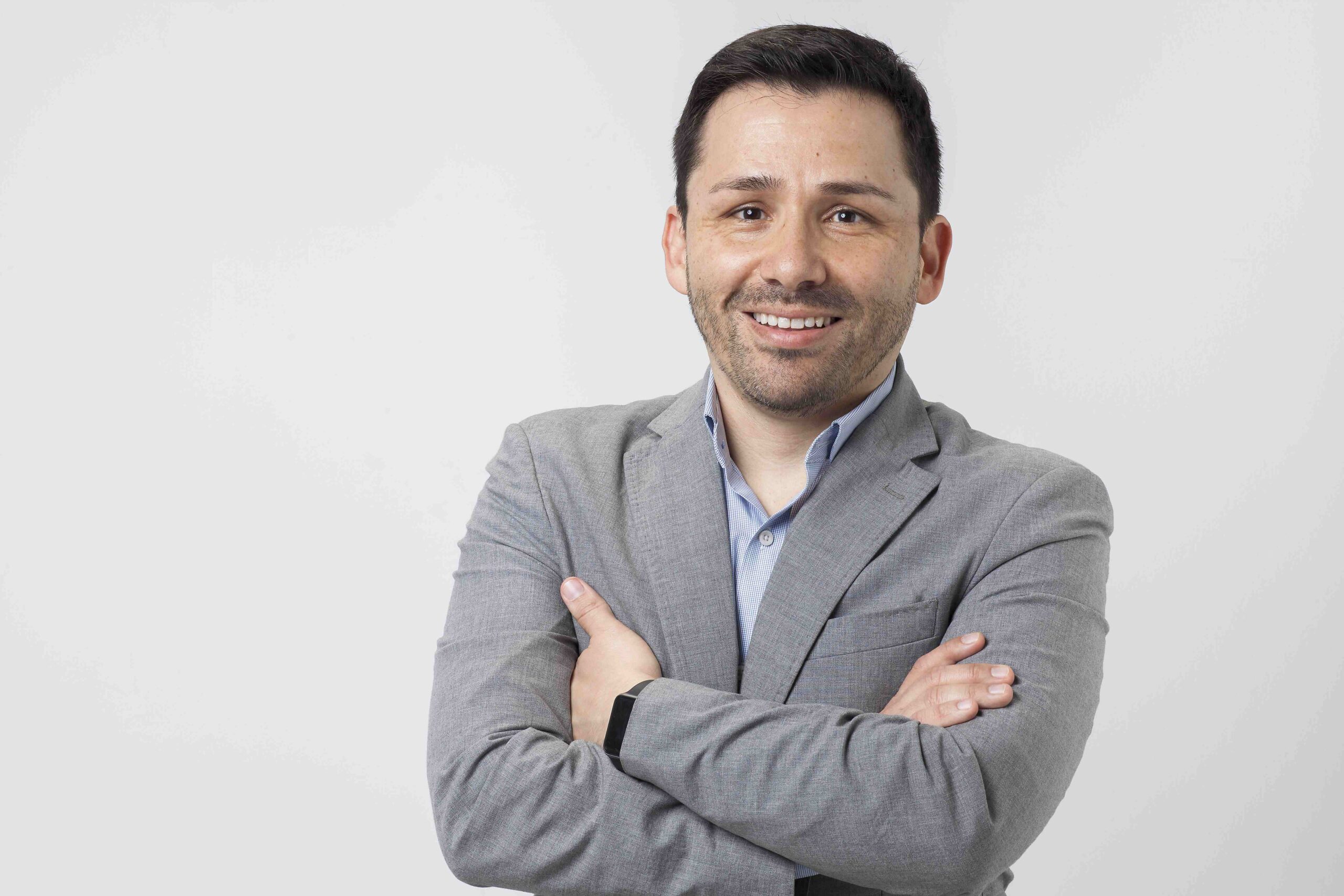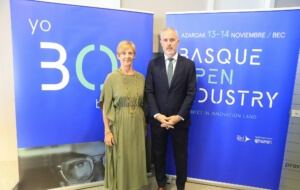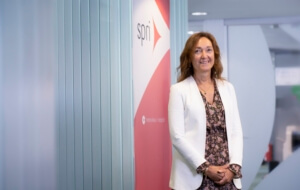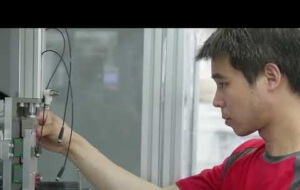

In the photo, we present César Pérez, Technology Director of Lortek.
This month dedicated to presenting the technological and human capacities of the Basque Digital Innovation Hub’s Additive Manufacturing node to the Basque industrial companies, closes with The Opinion of the Coordinator of the BDIH’s Additive Manufacturing Node, César Pérez.
Cesar began his educational career at the National University of Colombia, graduating in Industrial Engineering, and later obtained a PhD in Science, in the area of Materials, at the University of Valladolid. He later pursued a master’s degree in B.A. at the University of Alcalá, with specializations in innovation management and finance at IE Business School and IESE respectively, and more recently a specialization at the prestigious University of Pennsylvania, focusing on the use of Big Data and predictive analysis. During his professional career he has worked mainly in manufacturing companies, as a product manager, project manager or business developer, and has so far combined this with teaching and research positions at the National University of Colombia and the University of Valladolid. Since September 2019, he is the Technological Director of Lortek.
In addition to these experiences and achievements, César is also the coordinator of the BDIH additive manufacturing node. – The Nodes are structures that integrate the capacities, knowledge and technologies of different centers to offer the best response to companies in the Basque Country through a single window.
Thus, additive manufacturing in the Basque Country has been acquiring increasing importance in the industrial sector, due to its avant-garde techniques and the great focus of existing industrial production.
This node has 32 assets distributed among 13 centres (LORTEK – coordinator, CEIT, CIDETEC, GAIKER, IDEKO, IKERLAN, IMH, INNOVALIA, MONDRAGON UNIBERTSITATEA, TECNALIA, TEKNIKER, UPV/EHU and VICOMTECH), that support the solution of existing problems in the Basque industry with the integration of techniques for additive manufacturing that cover the entire value chain, from the design and production of materials, design for FA, production, to post-production, validation, monitoring and digitalization, thus increasing the competitiveness of the sector and the economic and social impacts for the region. One of the greatest values of the Node is the union of all these technical and human capacities of the different centers that, together, allow to support the development of products and services to the Basque industry using these vanguard technologies.
Additive manufacturing focuses on the production of short series of geometrically complex parts, which are impossible to produce by conventional techniques. Additive Manufacturing uses layer-by-layer part manufacturing technologies that, in addition to the incorporation of sophisticated design techniques, such as topological optimization or “generative design”, allows disruptive designs that meet customer expectations and requirements. For the production of the parts, there is a wide variety of additive manufacturing technologies, both for ceramic materials, as well as for polymeric, metallic or composite materials, adapted to the dimensions, tolerances and materials of each company challenge.
Some of the technologies, working materials, dimensions and tolerances of the parts that can be achieved through Additive Manufacturing and with the capabilities of the node, are shown in this guide.[1]
Some Basque companies have started to work and experience first-hand the benefits of these technologies offered by the additive manufacturing node, achieving new product designs with new functions, components optimization to offer greater performance, or new functionalities, in general.
Additive manufacturing means, not only the adoption of new design and production technologies, but also a clear change in the industrial paradigm inserted in the 4.0 revolution. The hyper-customization of products is a reality nowadays, as are the demands for sustainability and smartization of processes and products. Additive manufacturing plays a relevant role in these challenges, allowing companies greater flexibility in their designs and products, accompanying the new paradigms of sustainability in product life cycles and allowing companies to create new product lines that combine design and production flexibility with digitalisation, sensorisation and IoT, opening up new paths to data-based products and value.
Contact the BDIH network to find out how we can bring your company closer to the solutions that interest you most.
[1] Based on the Review Fused deposition modeling-based additive manufacturing (3D printing): techniques for polymer material systems, Materialstoday Chemistry, Volume 16, June 2020),
 19 September, 2024 Digitalisation
19 September, 2024 Digitalisation 27 September, 2023 Digitalisation
27 September, 2023 Digitalisation 5 October, 2021 Digitalisation
5 October, 2021 Digitalisation 5 October, 2021 Digitalisation
5 October, 2021 Digitalisation 1 October, 2021 Digitalisation
1 October, 2021 DigitalisationFor SMEs, for diversifying markets, internships abroad, international tenders, non-reimbursable subsidies to consolidate exports, subsidies for deployments or specific training in internationalisation.
You’re interested, right?